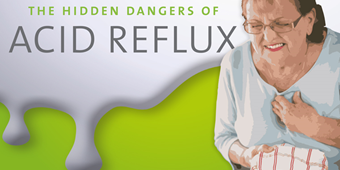Does Your Child Cry Over Milk Protein Allergy?

Find Your Perfect Match
Answer a few questions and we'll provide you with a list of primary care providers that best fit your needs.
If your baby’s fussy, one of the possible reasons could be that she’s allergic to cow’s milk protein. A milk protein allergy can cause digestive discomfort and frequent spitting up.
An allergy to the protein in cow’s milk affects 2 to 3 percent of children under age 3. If your child is allergic to cow’s milk, her body’s immune system has an abnormal reaction to the milk protein.
This is different than lactose intolerance, a condition you may be more aware of.
Your doctor can help determine if your child has a cow’s milk allergy, if he’s lactose intolerant, or if something else is causing symptoms.
The good news: About 80 percent of children outgrow the milk protein allergy by the time they are 16.
Cow’s Milk Allergy vs. Lactose Intolerance
An allergy to cow’s milk and lactose intolerance affect different body systems and cause different symptoms.
Milk allergy. If your child has a milk allergy, his immune system attacks the milk protein, releasing histamines and other chemicals that cause allergic reactions in the skin, such as hives, and/or the gastrointestinal system. Breastfed babies with a milk allergy react to dairy products eaten by the mother. Formula-fed babies react to the cow’s milk protein in the formula.
Symptoms of a milk allergy include:
- Frequent spitting up
- Vomiting
- Abdominal pain
- Crying and irritability after feeding
- Diarrhea
- Blood in stool
- Not gaining weight
- Hives
- Scaly skin rash
- Coughing or wheezing
- Watering eyes and stuffy nose
- Anaphylaxis (extreme allergic reaction that affects breathing)
There are two types of cow’s milk allergies – one with an immediate reaction and the other, delayed:
- IgE mediated milk allergy causes a reaction within two hours of exposure to cow’s milk protein. IgE, or immunoglobulin E, is a human antibody that causes allergy symptoms like hives, rashes and wheezing.
- Non-IgE mediated milk allergy carries a delayed response, with symptoms appearing 48 hours to a week after exposure to cow’s milk protein.
Milk (lactose) intolerance. If your child is lactose intolerant, she cannot digest the sugar in milk called lactose. Babies are rarely born with lactose intolerance. The condition more commonly develops in older children and adults. People who are lactose intolerant do not have enough lactase. Lactase is an enzyme produced in the small intestine and is needed to digest lactose.
Symptoms include:
- Gas
- Diarrhea
- Bloated stomach
- Abdominal cramps
- Irritability, crying
- Eczema
- Failure to thrive and gain weight
If your child shows signs of milk allergy or milk intolerance, talk with your doctor right away.
Who’s at Risk for a Milk Allergy?

Cow’s milk is one of eight food allergens that make up most cases of food allergies in the U.S. The others are eggs, fish, peanuts, shellfish, soy, tree nuts and wheat.
Children with a parent or sibling who has asthma, eczema or seasonal allergies may be more likely to develop a milk allergy.
The following symptoms of milk allergy require immediate medical attention:
- Difficulty breathing (anaphylaxis)
- Turning blue
- Lethargy, extreme weakness
- Generalized hives
- Fever
- Bloody diarrhea
- Swelling in area of head and neck
In the case of severe symptoms or anaphylaxis, be prepared to use an EpiPen, which contains an injectable dose of epinephrine, the only medicine that can reverse the symptoms of anaphylaxis.
The good news: About 80 percent of children outgrow the milk protein allergy by the time they are 16.
Diagnosis and Treatment
To diagnose a cow’s milk allergy, your doctor will talk with you about your child’s medical and family history and symptoms. The doctor may perform tests, such as:
- A skin-prick test
- A serum IgE blood test
- Checking the stool
If your baby has a milk allergy, he must avoid milk, other dairy products and products containing milk protein. And if you breastfeed, these restrictions apply to you, too.
Babies taking formula should switch to a hypoallergenic version recommended by your doctor. It is best to avoid soy-based formula because many children who are allergic to cow’s milk are also sensitive to soy.
If you have children age 1 and older who are allergic to cow’s milk protein, remove milk and milk products from their diet, including:
- Milk
- Cheese
- Ice cream
- Yogurt
Read labels carefully. That’s because two kinds of milk proteins are found in many foods:
- Casein is the solid part of milk and makes up 80 percent of milk protein.
- Whey is in the liquid part of milk, making up the rest.
Milk protein can be found in:
- Canned tuna
- Sausage and other meats
- Beverage mixes
- Body-building and energy drinks
- Chewing gum
Some people with a milk protein allergy can eat foods with milk that has been extensively heated, like in a muffin.
You may ask your health care provider about meeting with a nutritionist to help ensure that you, as a nursing mother, and your children with milk protein allergies receive proper nutrition while avoiding cow’s milk protein. Cow’s milk provides calcium, vitamin D and potassium.
Preventing and Outgrowing a Milk Allergy
Breastfeeding appears to reduce the development of cow’s milk allergy. Doctors recommend moms breastfeed their babies for at least four months to get the most preventive benefit.
Most children with a cow’s milk allergy outgrow the condition between the ages of 2 and 5, and the allergy rarely lasts into the teen years.
If your child is diagnosed with a cow’s milk allergy, be sure to follow up with your doctor for repeat testing.
Over time, dairy foods can be reintroduced into your child’s diet under the guidance of a doctor or nutritionist. You’ll want to watch for symptoms, as you reintroduce each dairy food.
Find Your Perfect Match
Answer a few questions and we'll provide you with a list of primary care providers that best fit your needs.
Source: American Academy of Allergy, Asthma and Immunology, WhatToExpect.com, North American Society for Pediatric Gastroenterology, Hepatology and Nutrition, National Dairy Council




